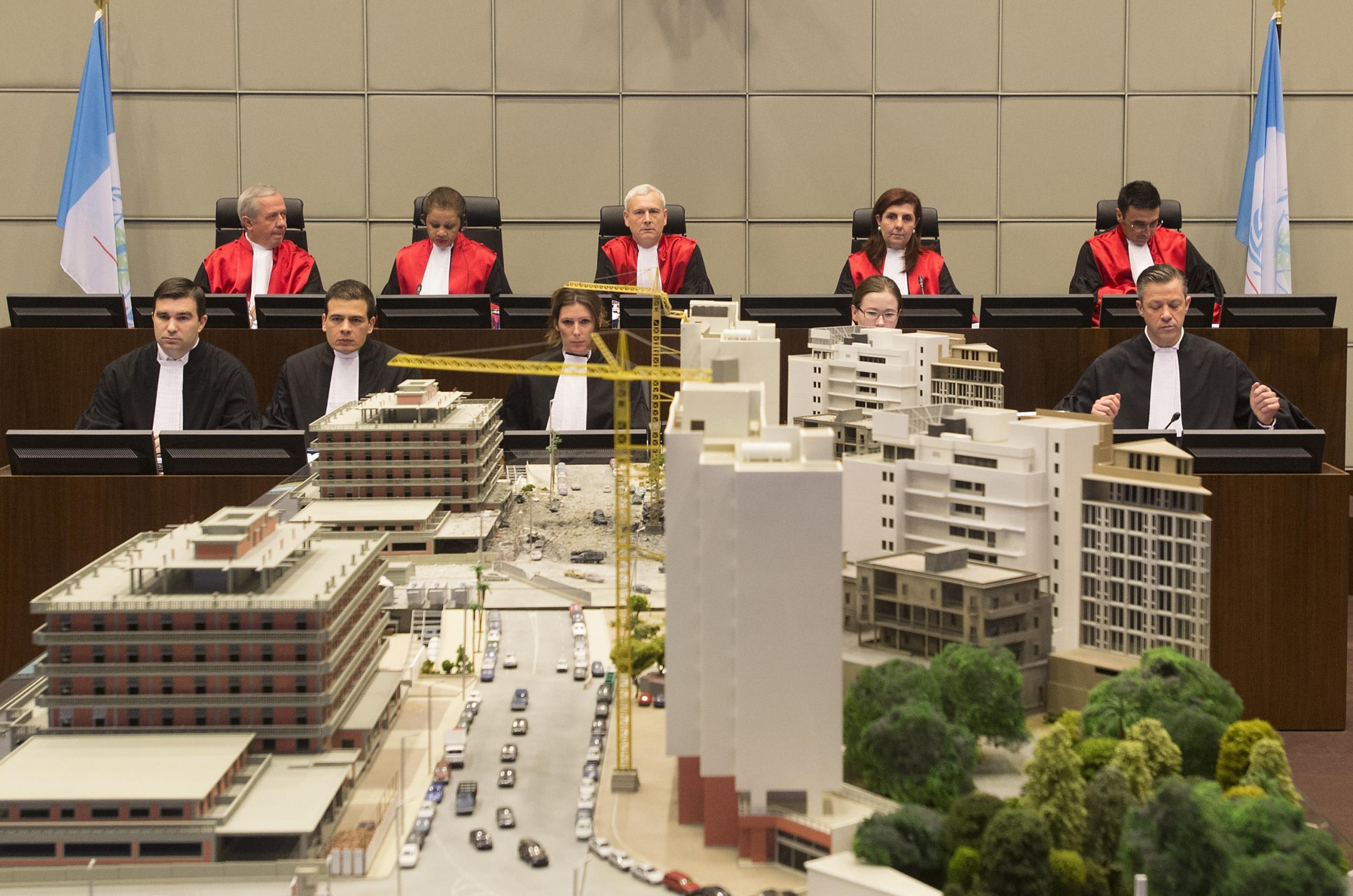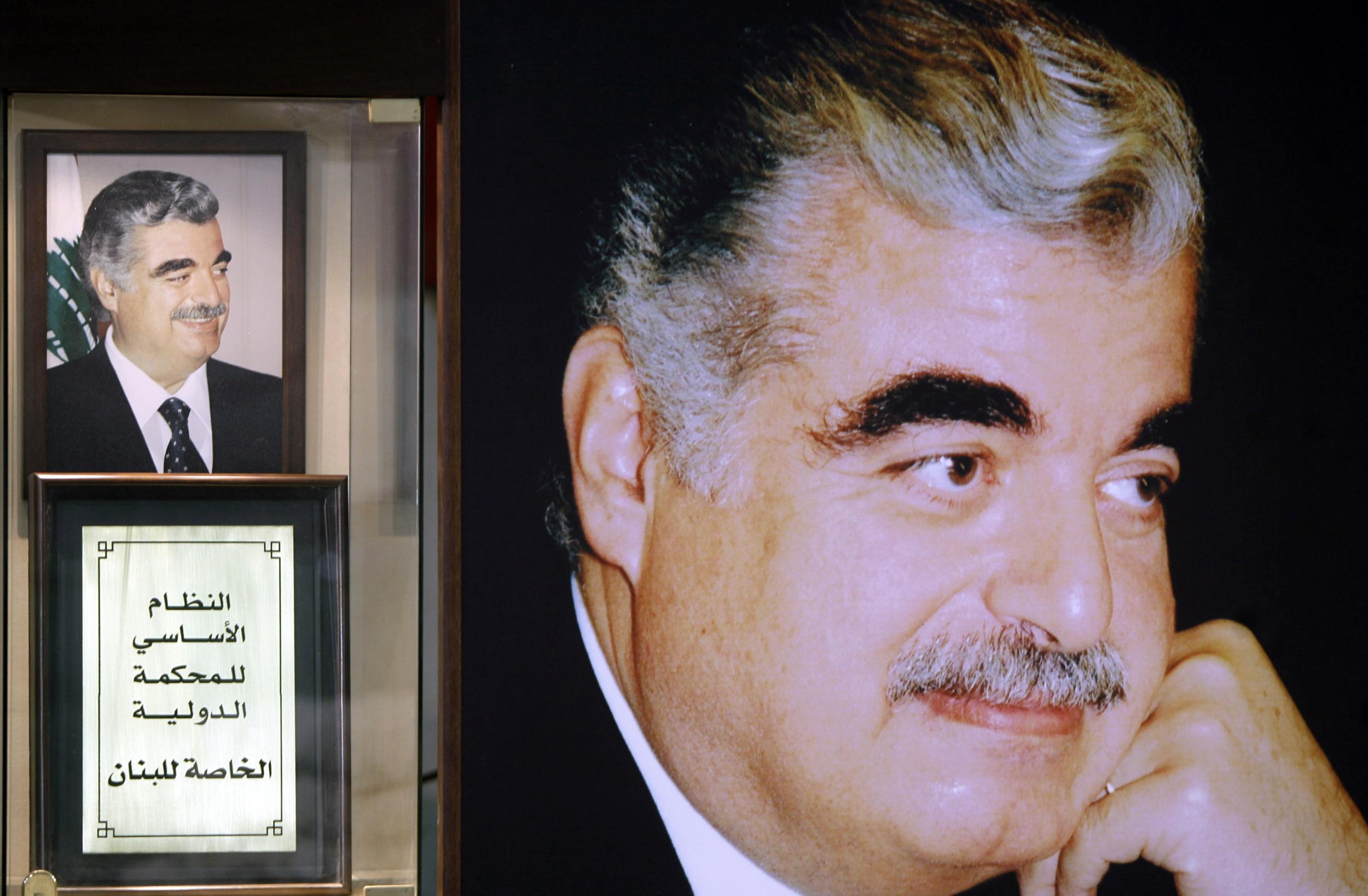Rafiq Hariri: Lebanon braces for UN-backed court's verdict on assassination of ex-PM
Long-awaited ruling comes as the country is still reeling from 4 August explosion that killed at least 180 people

Your support helps us to tell the story
From reproductive rights to climate change to Big Tech, The Independent is on the ground when the story is developing. Whether it's investigating the financials of Elon Musk's pro-Trump PAC or producing our latest documentary, 'The A Word', which shines a light on the American women fighting for reproductive rights, we know how important it is to parse out the facts from the messaging.
At such a critical moment in US history, we need reporters on the ground. Your donation allows us to keep sending journalists to speak to both sides of the story.
The Independent is trusted by Americans across the entire political spectrum. And unlike many other quality news outlets, we choose not to lock Americans out of our reporting and analysis with paywalls. We believe quality journalism should be available to everyone, paid for by those who can afford it.
Your support makes all the difference.A UN-backed special tribunal investigating the assassination of former Lebanese prime minister Rafiq Hariri 15 years ago is set to deliver its long-awaited verdict on Tuesday.
Four members of the Lebanese militant group Hezbollah are charged with conspiracy to carry out the 2005 suicide truck bombing in Beirut that also killed 21 other people and injured over 200 more. The case by the prosecutors is based largely on data from mobile phones allegedly used by the plotters to plan and execute the bombing.
Five suspects were originally tried in absentia by the Special Tribunal for Lebanon (STL) near The Hague. But charges against one of Hezbollah's commanders, Mustafa Badreddine, were dropped after he was reportedly killed in Syria in 2016.
Hezbollah, an Iran backed Shia group, has repeatedly denied any link to the assassinations and dismisses the tribunal as politicised.
A guilty verdict will likely inflame political tensions throughout the country at a time when it is reeling from the 4 August explosion at Beirut's port which killed around 180 people, injured more than 6,000 and left a quarter of a million homes unfit to live in.
The original verdict was actually postponed because of the blast, which was likely caused by thousands of tonnes of poorly-stored explosive materials catching fire in the port.
Hariri, a Sunni Muslim business tycoon and Saudi passport holder, had close ties with the United States, western countries but also Gulf Sunni states and at the time of his death was seen as a threat to Iranian and Syrian influence in Lebanon.
Syria has been accused by many in Lebanon of being involved in or at least having knowledge of the assassination, which Damascus has vehemently denied.
His son Saad, himself a former prime minister, is attending the day-long delivery of the judgement, which began at 11am CET.
The suspects in the case are Salim Ayyash, also known as Abu Salim; Assad Sabra, Hassan Oneissi, who changed his name to Hassan Issa and Hassan Habib Merhi. They are charged with offences including conspiracy to commit a terrorist act.
If they are convicted, sentences will be pronounced in a separate public hearing.
As the UN-backed court has no death sentence, the maximum sentence is life imprisonment. Both the prosecutors and the convicted can appeal the judgement and the sentence - which could mean the final verdict is delayed by several years.
None of the men is very likely to serve time, however, as Hezbollah has vowed not to hand over any of the suspects.
Hariri was killed on 14 February 2005 as he got into his car after visiting the Café de l’Etoile by parliament, where he served as an MP.
A truck bomb tore through his vehicle as his motorcade passed along the seafront corniche. It left a massive crater and ripped out the facades of the surrounding buildings, killing 21 people including Hariri himself, his bodyguards, pedestrians and the former economy minister Bassil Fleihan.
The assassination sent shockwaves through the region and the world at the time, sparking mass protests later dubbed the Cedar revolution within Lebanon.
Following intense pressure from the UN, France and the US, it also culminated with Syria pulling its troops out of Lebanon after nearly 30 years.
Following the withdrawal, there were several other bombings and assassination attempts of other anti-Syrian figures including politicians and journalists.
Some of those are being examined by the STL, which was created by UN Security Council resolution 1757 and began its work in March 2009.

While its primary mandate was to try those accused of being behind the 2005 bombing that killed Mr Hariri, the STL has also been examining assassination attempts that occurred between October 2004 and December 2005 to see if they are connected.
When the trial opened in January 2014, a scale model of the blast scene stood on a table in the centre of the courtroom and a prosecutor told judges that explosives packed into a Mitsubishi truck detonated to create "a man-made hell."
The verdict has been repeatedly postponed for fear of violent repercussions on the ground, and more recently due to the coronavirus pandemic and then the 4 August explosions.
The assassination and subsequent investigation have also repeatedly inflamed political and sectarian tensions inside Lebanon as a result of investigators linking Hezbollah to the crime.
Following the 2005 assassination, there emerged two rival coalitions which still play a role in Lebanese politics today and have pitted anti and pro-Syrian camps against each other. They are the 14 March movement, led by Hariri’s son Saad, and 8 March movement which has allies with Hezbollah and Syria.
Join our commenting forum
Join thought-provoking conversations, follow other Independent readers and see their replies
Comments